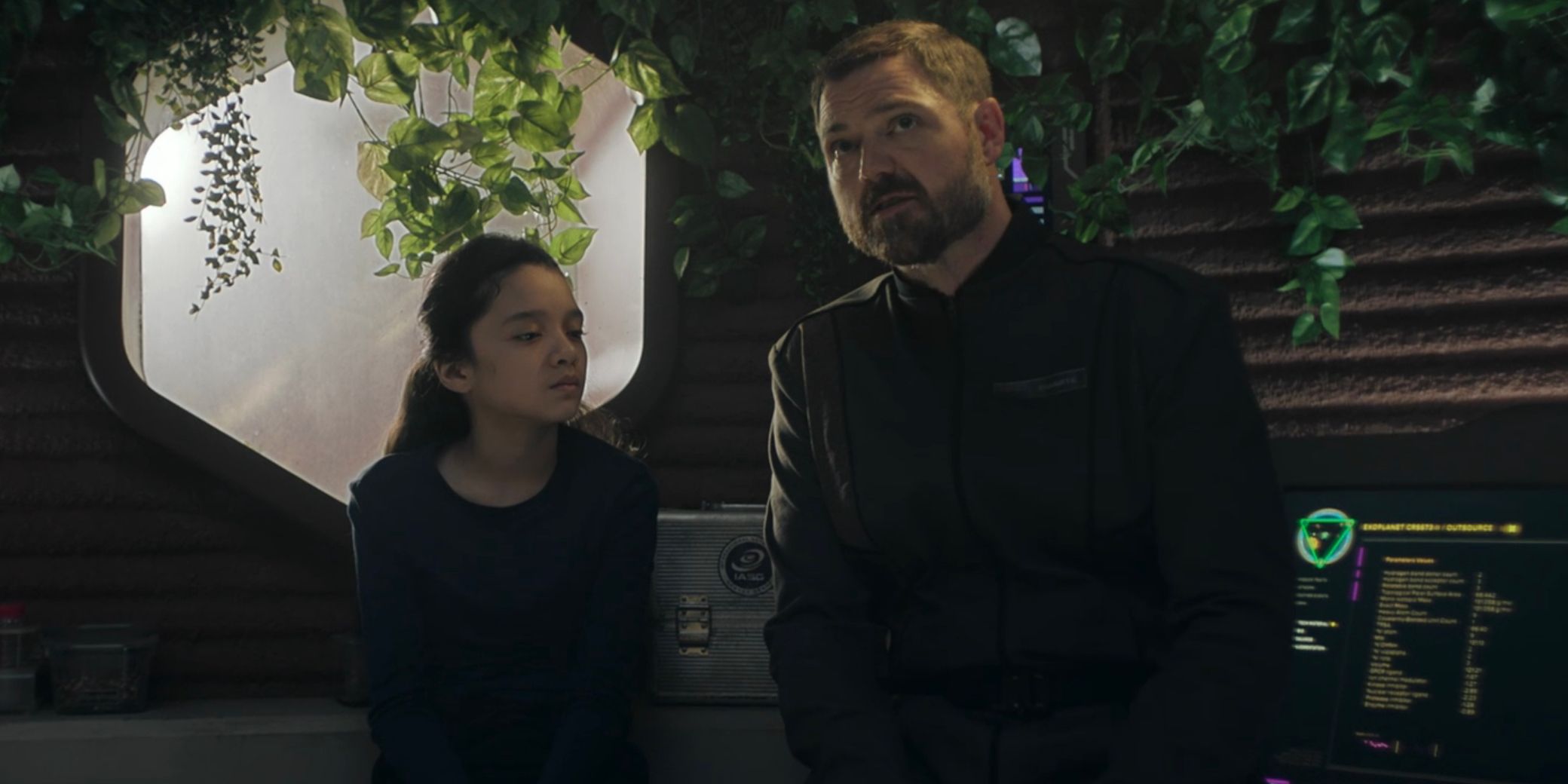The introductory sequence of The Expanse season 6, episode 4 (“Redoubt”) solves the book’s problem of virtually neglecting Laconia and its rising empire led by Admiral Winston Duarte. Given book 6 Babylon’s Ashes‘ central focus on the Free Navy conflict in the Sol system, it’s easy to see why Laconia’s The Expanse storyline wouldn’t feature much in season 6. However, the inclusion of the novella, Strange Dogs, introduces the distant planet and its leader in a way that improves upon the show’s source material.
For its final season on Prime Video, The Expanse season 6 adapts Babylon’s Ashes to the screen in just six episodes — a significant reduction from the series’ 10- and 13-episode seasons in the past. Strange Dogs, which takes place shortly after the events of Babylon’s Ashes tells the story of Cara, a child born on Laconia to Earther parents, who discovers alien-like creatures capable of reviving deceased life forms in an altered state. In The Expanse season 6, the Strange Dogs plotline takes place in the background of the war against The Expanse‘s Marco Inaros’ Free Navy with short sequences at the start of each episode.
At the beginning of episode 4, Cara is seen attending the funeral of her brother Xan, who died after being hit by a vehicle. Admiral Duarte approaches her and the two talk for several minutes before the protomolecule scientist, Paolo Cortázar, bursts into the room and announces to Duarte a breakthrough in his work, as the two hurriedly leave together. In the book, readers are mostly left in the dark concerning Duarte and his intentions until the successive novel, Persepolis Rising. The brief introduction of Duarte in The Expanse season 6’s Strange Dogs storyline addresses this crucial backstory missing in the book.

In his conversation with Cara, Duarte mentions the importance of sacrifice and relates it to how he gave up the dream of Mars to start anew on Laconia. He acknowledges her grief over her brother’s death and assures her that the Laconians are building something important and that every sacrifice will be worth it in the end. The brief discussion highlights the authoritarian Laconian Empire’s vision, which doesn’t make itself known until after the nearly 30-year time jump in books. Featuring Duarte in The Expanse season 6 in this manner lays the groundwork for the concepts highlighted when the empire makes its grand entrance on the universal stage.
Cortázar’s brief appearance at the end of the scene serves as a nod to the ships they’re building using The Expanse‘s alien protomolecule technology. As he and Duarte exit the room, Cortázar says, “I think I can turn it on,” presumably referring to the ancient construction platforms in the sky above Laconia. The ships built using these platforms eventually function as a major factor in Laconia’s bid for absolute rule over the 1,300 worlds later on. The series has already featured numerous shots of the glowing blue structure, which serves as an ominous reminder of the looming threat.
Since Duarte emerges as a central figure in The Expanse books 7, 8, and 9, introducing him now is a good way to foreshadow what’s to come. While no official plans for an on-screen continuation of the series have materialized publicly, it’s certainly possible that The Expanse will adapt its later source material at some point in the future — to which the series’ writers have expressed their openness. For now, The Expanse season 6 is providing the series a chance to seamlessly transition to its next endeavor.
New episodes of The Expanse air Fridays on Prime Video.




